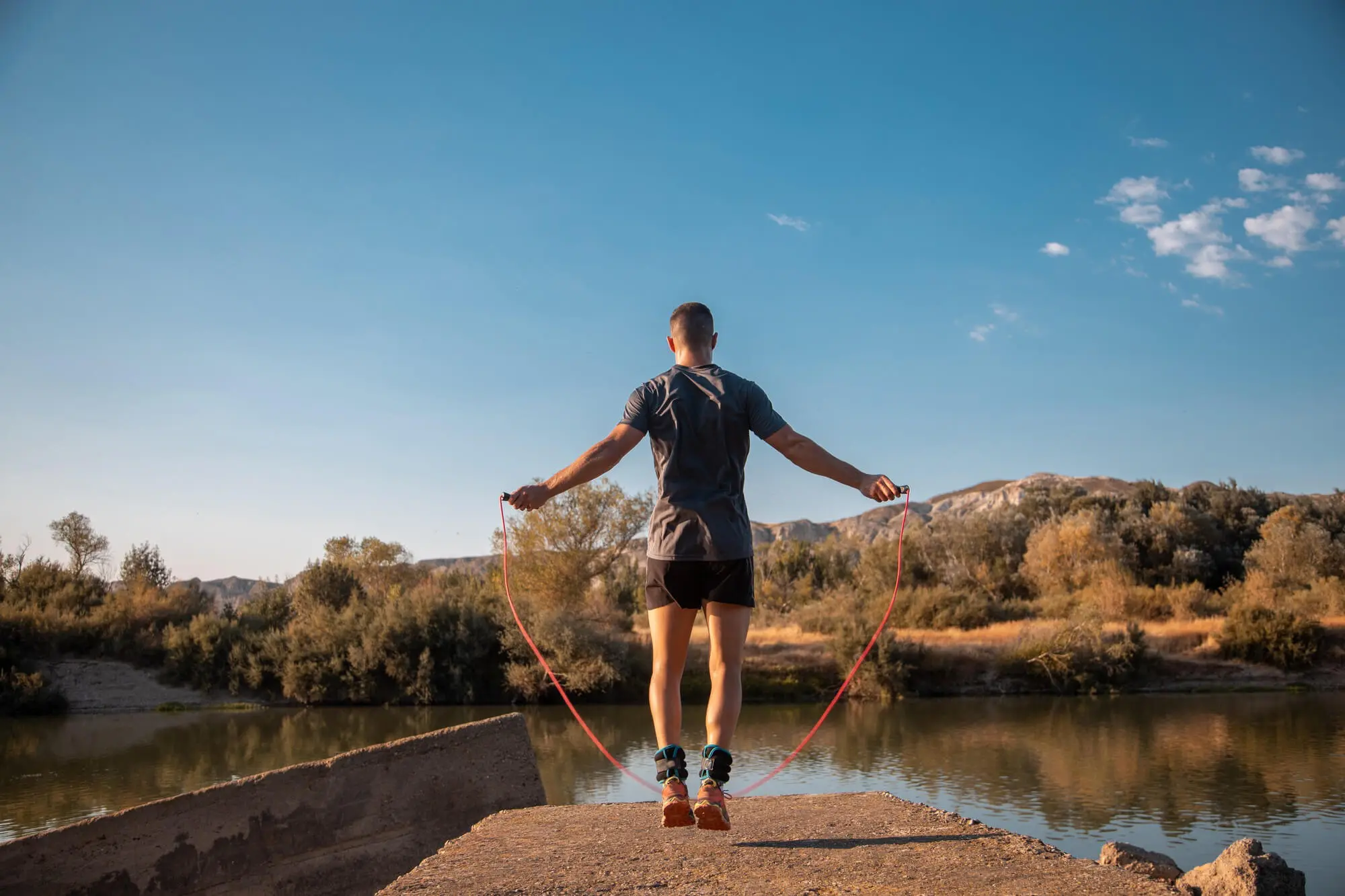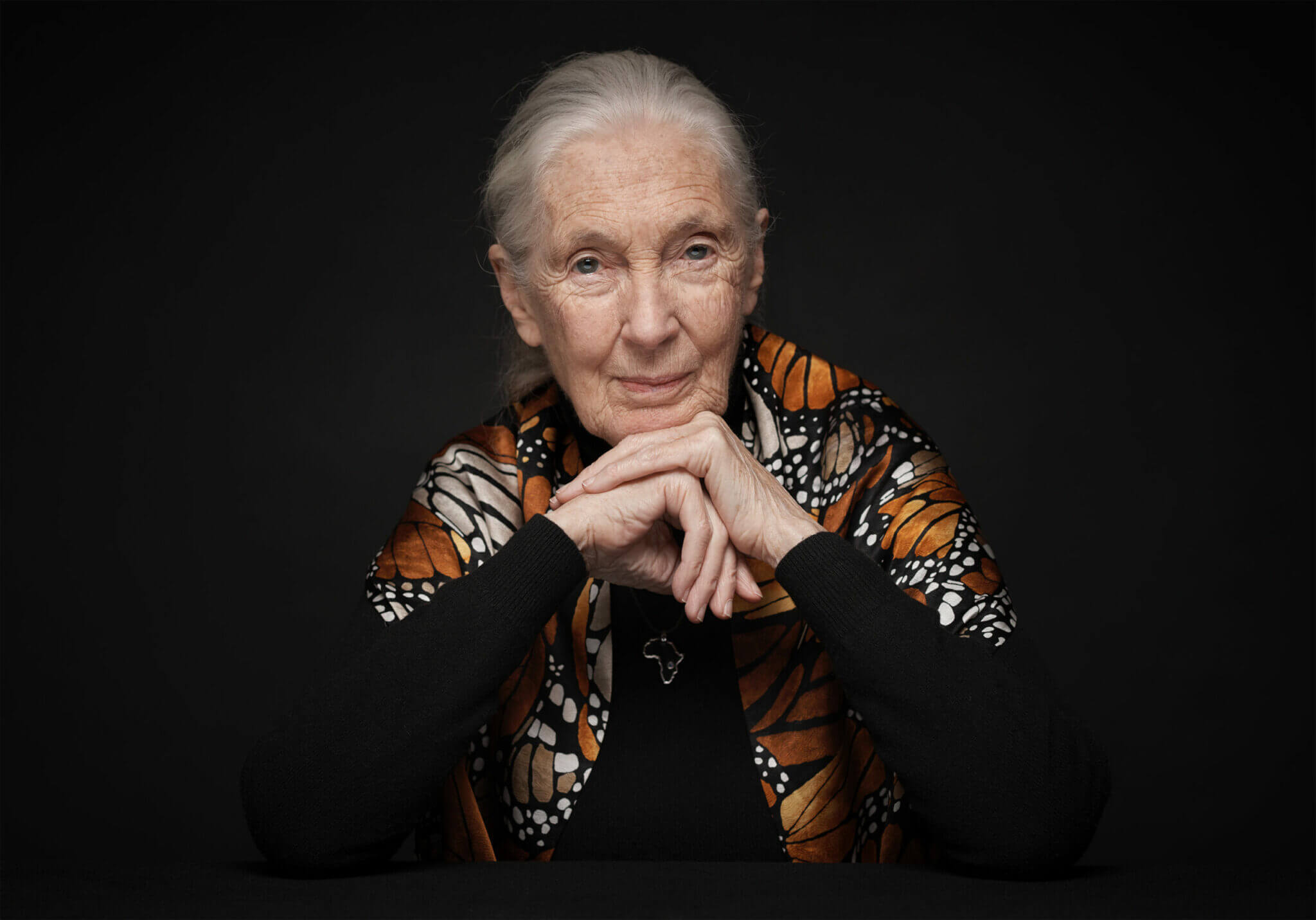Sergey Young is in no hurry to get old - part 1
Longevity investor and best-selling author answers questions about his mission, research, and book

As a leading investor and visionary in the field of longevity, Sergey Young has set himself the task of extending the healthy life span of one billion people. To that end, he created the $100 million Longevity Vision Fund to accelerate technological breakthroughs to extend life and make longevity affordable and accessible to all.
In his bestseller published in 2021 The Science and Technology of Growing Young (The Science and Technology of Discipleship) Young addresses the most important questions about the current and future state of longevity research. Based on research results and findings from the world's leading scientists, doctors, inventors and healthcare entrepreneurs, it presents in Growing YoungWhy the prospect of living to be 200 years old may no longer be science fiction.
In addition to breakthrough technologies, Young also points out that we already have more resources available to live longer than we know and concludes with practical steps we can take to optimize health and lifespans.
Young took time to interview GAIN founder Carola Phillips via Zoom to answer a few questions about his mission, research, and book.
CP: It's good to see you Sergey.
SY: Hi Carola, hello everyone. I'm very happy to be here today. Thank you so much
CP: Let's start with the first question then. What sparked your interest in longevity?
SY: The unfortunate reality. As with so many of us, we only develop interest in health and mobility after a personal health crisis. Nine out of ten people I know didn't think about it proactively, had no serious reason to be interested in this topic — it's always the same story. They have their own health crises, or their mother or someone from their family or circle of friends has cancer, heart disease, or diabetes, and that's when they discover this whole topic and the idea of health and longevity.
I have the same story. My story isn't dramatic, not at all. I have high cholesterol levels and frankly speaking, 25 to 30% of people around the world have the same problem. Sometimes it's genetic, sometimes it's a lifestyle.
When I saw a doctor in 2015 and he told me that I had high cholesterol levels, I said, “No problem, just give me a medication.” My only question was whether I needed to take it for a month, two, or three months. The doctor smiled and said, “I'm sorry, but you don't fully understand. They're statins (the class of drugs that lower cholesterol), and you must take them every day for the rest of your life. ”
And that was like a wake-up call for me. I thought, gosh, why does my body need that chemical support to function and that for the rest of my life? I rejected the whole idea. So I became interested and wondered how we could support our immune system and the various other systems in our bodies so that we could become a much healthier version of ourselves.
It all starts with lifestyle changes such as diet, exercise, sleep, supplements, etc. I developed a real interest in them and thought that if I wanted to support the area of longevity and longevity research and technology, why not invest in that area? That's how I came up with the idea to found the Longevity Vision Fund. We've invested in various companies over the last four years, and it's been the most amazing four years of my life so far.
CP: That's great. You're doing two good things at the same time — you're taking care of your health and probably your family's health too, and you're contributing to the overall good...
SY: Yes. When my kids write a letter to Santa Claus, they write: “Can we please have normal pasta in our house, not gluten-free ones?”
CP: That's funny!
SY: Yes, it is a bit cruel, but they are spoiled by their grandparents and the selection of sugary things and pasta at school is also plentiful. So I don't feel bad about creating a bubble of longevity and projecting all that onto my kids, sometimes without consent.
CP: They'll thank you for it later.
SY: Yes, just not now. But it's funny and they kind of like it.
CP: Let's move on to your longevity fund and portfolio. Is there a company or technology that you're particularly excited about?
SY: We have eighteen companies. We invest in early cancer detection or affordable diagnostic equipment and tools. We invest in gene and cell therapy. We invest in organ regeneration. We invest in the use of artificial intelligence for diagnostics and also for drug development. These are some of our portfolio companies, but I would start with the company that deals with epigenetic reprogramming.
It's a company called Life Bioscience and was founded by Dr. David Sinclair from Harvard Medical School. He is a very good friend and thought partner in many areas of longevity. I think that with epigenetic reprogramming, David's team was able to show for the first time in the history of science that it is actually possible to safely reset our aging clock at the cellular level. By reprogramming cells, we can actually build up another type of tissue and thus reverse aging at that level. That is important and I am very happy about it.
I find the time we live in amazing, and it's exciting when we can cure so many diseases — from some types of cancer to genetic diseases or rare diseases. And if you add up all people who suffer from so-called rare diseases of a genetic and not genetic nature, that's 300 million people all over the world. People who need help.
I'm so happy about all of these technologies, all these scientific breakthroughs, that we're now going to be able to help them all.
CP: I can imagine that these technologies and developments are at different stages, so that some will be available earlier and others are more likely to be expected in the longer term.
SY: Yes, that's right. Take cancer, for example. I'm 51 years old, and you and I and some of our listeners probably remember that cancer was the kiss of death 20 or 40 years ago. People delayed the day they went to a cancer screening because when you are told that you have cancer, in some cases you only have 6 to 12 months to live on this planet.
If you carry out an early cancer diagnosis now, the cure rates for most types of cancer are 93 to 100%, which is astonishing. Here too, we must do a great deal for early cancer detection. And if we recognize him at an early stage and the person has gone through the treatment, we can still enjoy his or her company. Sometimes people stay exactly the same, maintain the same quality of life. So I find it amazing, and we're going to see more and more amazing developments on this front and on other fronts in various aspects of health and medicine.
The second part of the interview is available here.
web page: www.sergeyyoung.com
book: https://amzn.to/3E8GWJF
Instagram: @sergeyyoung200
References
Publiziert
31.8.2024
Kategorie
Longevity

Experte
As a leading investor and visionary in the field of longevity, Sergey Young has set himself the task of extending the healthy life span of one billion people. To that end, he created the $100 million Longevity Vision Fund to accelerate technological breakthroughs to extend life and make longevity affordable and accessible to all.
In his bestseller published in 2021 The Science and Technology of Growing Young (The Science and Technology of Discipleship) Young addresses the most important questions about the current and future state of longevity research. Based on research results and findings from the world's leading scientists, doctors, inventors and healthcare entrepreneurs, it presents in Growing YoungWhy the prospect of living to be 200 years old may no longer be science fiction.
In addition to breakthrough technologies, Young also points out that we already have more resources available to live longer than we know and concludes with practical steps we can take to optimize health and lifespans.
Young took time to interview GAIN founder Carola Phillips via Zoom to answer a few questions about his mission, research, and book.
CP: It's good to see you Sergey.
SY: Hi Carola, hello everyone. I'm very happy to be here today. Thank you so much
CP: Let's start with the first question then. What sparked your interest in longevity?
SY: The unfortunate reality. As with so many of us, we only develop interest in health and mobility after a personal health crisis. Nine out of ten people I know didn't think about it proactively, had no serious reason to be interested in this topic — it's always the same story. They have their own health crises, or their mother or someone from their family or circle of friends has cancer, heart disease, or diabetes, and that's when they discover this whole topic and the idea of health and longevity.
I have the same story. My story isn't dramatic, not at all. I have high cholesterol levels and frankly speaking, 25 to 30% of people around the world have the same problem. Sometimes it's genetic, sometimes it's a lifestyle.
When I saw a doctor in 2015 and he told me that I had high cholesterol levels, I said, “No problem, just give me a medication.” My only question was whether I needed to take it for a month, two, or three months. The doctor smiled and said, “I'm sorry, but you don't fully understand. They're statins (the class of drugs that lower cholesterol), and you must take them every day for the rest of your life. ”
And that was like a wake-up call for me. I thought, gosh, why does my body need that chemical support to function and that for the rest of my life? I rejected the whole idea. So I became interested and wondered how we could support our immune system and the various other systems in our bodies so that we could become a much healthier version of ourselves.
It all starts with lifestyle changes such as diet, exercise, sleep, supplements, etc. I developed a real interest in them and thought that if I wanted to support the area of longevity and longevity research and technology, why not invest in that area? That's how I came up with the idea to found the Longevity Vision Fund. We've invested in various companies over the last four years, and it's been the most amazing four years of my life so far.
CP: That's great. You're doing two good things at the same time — you're taking care of your health and probably your family's health too, and you're contributing to the overall good...
SY: Yes. When my kids write a letter to Santa Claus, they write: “Can we please have normal pasta in our house, not gluten-free ones?”
CP: That's funny!
SY: Yes, it is a bit cruel, but they are spoiled by their grandparents and the selection of sugary things and pasta at school is also plentiful. So I don't feel bad about creating a bubble of longevity and projecting all that onto my kids, sometimes without consent.
CP: They'll thank you for it later.
SY: Yes, just not now. But it's funny and they kind of like it.
CP: Let's move on to your longevity fund and portfolio. Is there a company or technology that you're particularly excited about?
SY: We have eighteen companies. We invest in early cancer detection or affordable diagnostic equipment and tools. We invest in gene and cell therapy. We invest in organ regeneration. We invest in the use of artificial intelligence for diagnostics and also for drug development. These are some of our portfolio companies, but I would start with the company that deals with epigenetic reprogramming.
It's a company called Life Bioscience and was founded by Dr. David Sinclair from Harvard Medical School. He is a very good friend and thought partner in many areas of longevity. I think that with epigenetic reprogramming, David's team was able to show for the first time in the history of science that it is actually possible to safely reset our aging clock at the cellular level. By reprogramming cells, we can actually build up another type of tissue and thus reverse aging at that level. That is important and I am very happy about it.
I find the time we live in amazing, and it's exciting when we can cure so many diseases — from some types of cancer to genetic diseases or rare diseases. And if you add up all people who suffer from so-called rare diseases of a genetic and not genetic nature, that's 300 million people all over the world. People who need help.
I'm so happy about all of these technologies, all these scientific breakthroughs, that we're now going to be able to help them all.
CP: I can imagine that these technologies and developments are at different stages, so that some will be available earlier and others are more likely to be expected in the longer term.
SY: Yes, that's right. Take cancer, for example. I'm 51 years old, and you and I and some of our listeners probably remember that cancer was the kiss of death 20 or 40 years ago. People delayed the day they went to a cancer screening because when you are told that you have cancer, in some cases you only have 6 to 12 months to live on this planet.
If you carry out an early cancer diagnosis now, the cure rates for most types of cancer are 93 to 100%, which is astonishing. Here too, we must do a great deal for early cancer detection. And if we recognize him at an early stage and the person has gone through the treatment, we can still enjoy his or her company. Sometimes people stay exactly the same, maintain the same quality of life. So I find it amazing, and we're going to see more and more amazing developments on this front and on other fronts in various aspects of health and medicine.
The second part of the interview is available here.
web page: www.sergeyyoung.com
book: https://amzn.to/3E8GWJF
Instagram: @sergeyyoung200
Experte
Referenzen
Publiziert
31.8.2024
Kategorie
Longevity

.svg)













